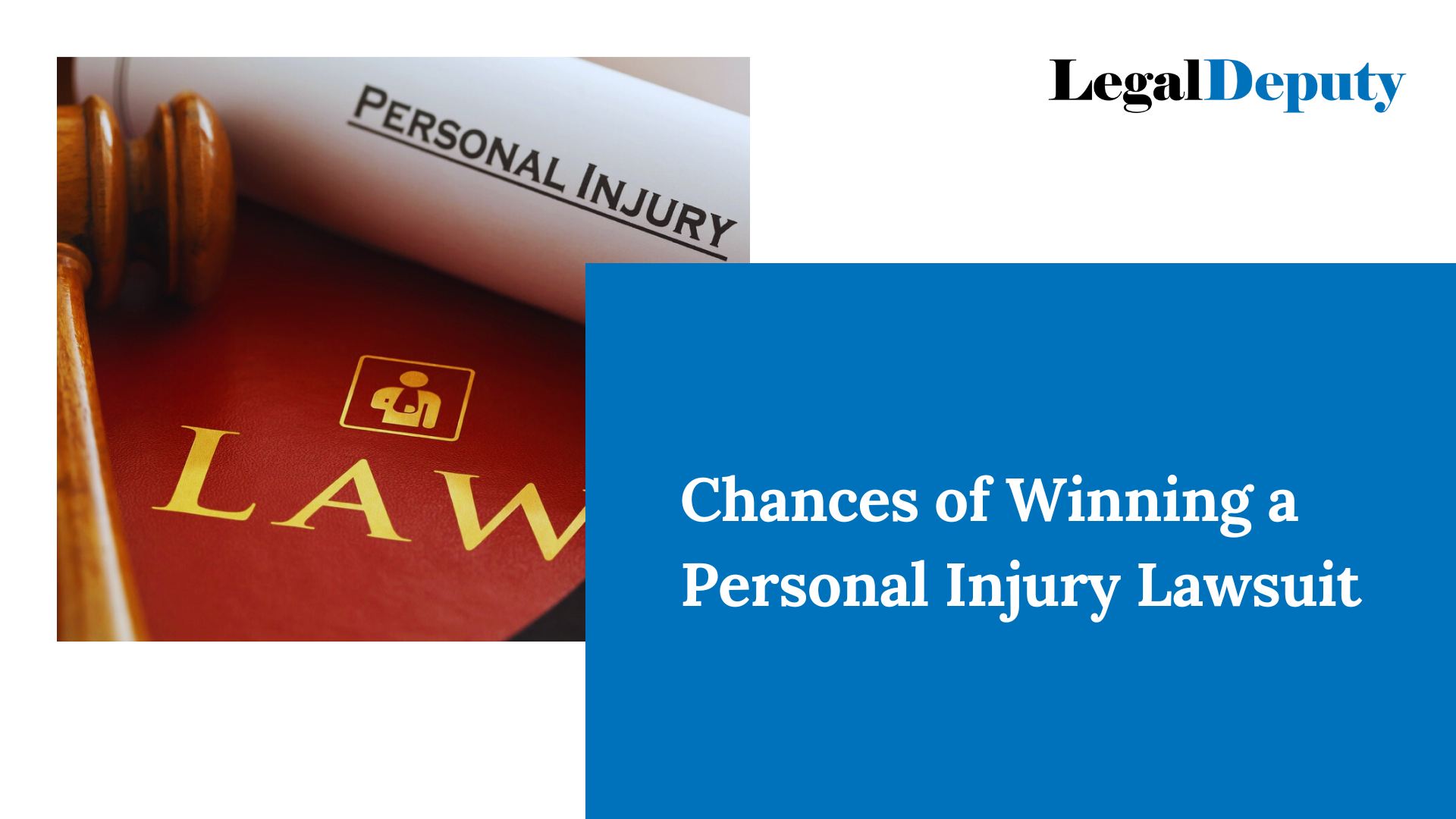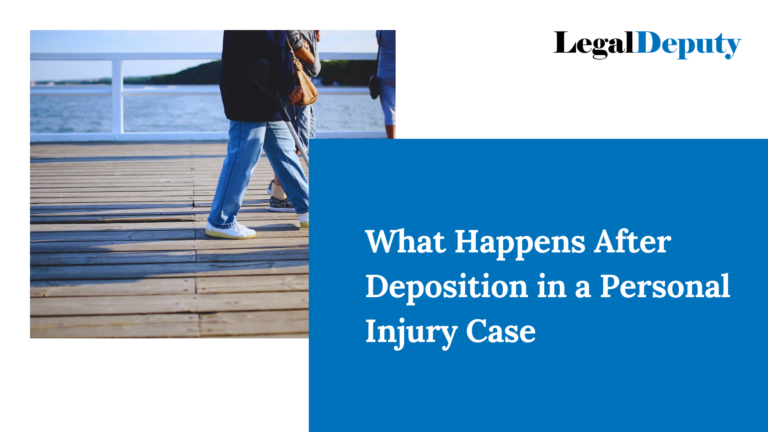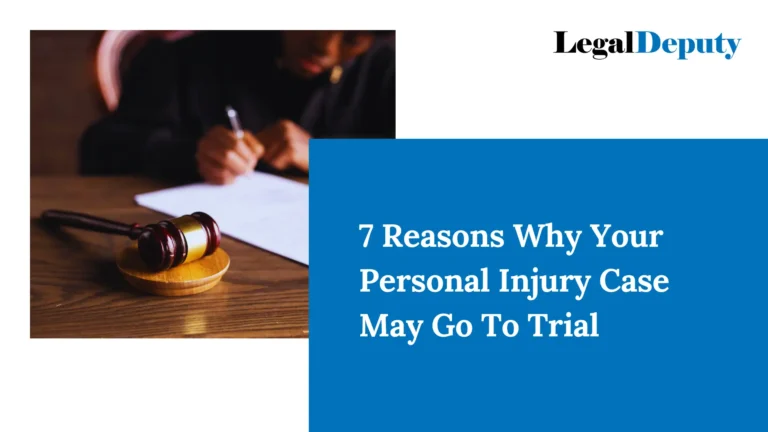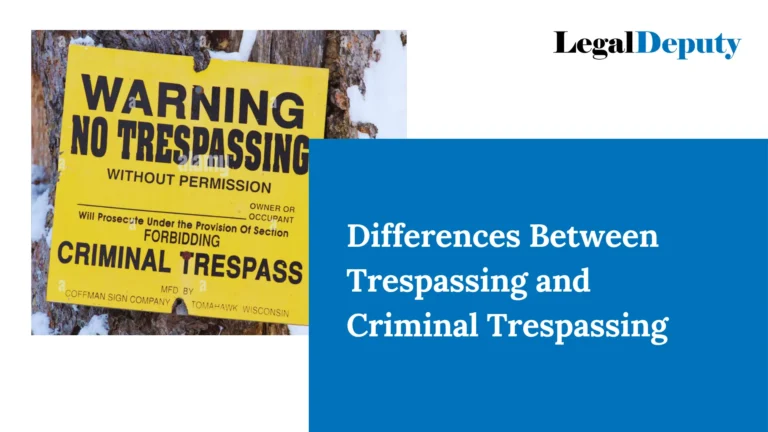Chances of Winning a Personal Injury Lawsuit – An Ultimate Guide
When you’ve suffered a personal injury, whether from a car accident, workplace incident, or medical malpractice, pursuing a lawsuit might seem overwhelming. Understanding your chances of winning and what to expect can help you navigate this challenging process with confidence.
Understanding Personal Injury Lawsuits
A personal injury lawsuit arises when someone suffers harm due to another party’s negligence. The injured party, or plaintiff, seeks compensation for their losses from the responsible party, or defendant. These cases cover a wide range of scenarios, including car accidents, workplace injuries, and medical malpractice.

Personal injury law aims to provide financial relief to victims by holding the negligent party accountable. This process often involves complex legal principles and detailed evidence gathering, making professional legal assistance essential.
Chances of Winning a Personal Injury Lawsuit
Winning a personal injury lawsuit depends on several factors:
1. Evidence:
Strong evidence is crucial. This includes medical records, witness statements, and expert testimony. The more comprehensive and detailed the evidence, the stronger your case.
2. Negligence Proof:
You must prove the defendant’s negligence directly caused your injury. This often requires demonstrating that the defendant owed you a duty of care, breached that duty, and caused your injuries as a result.
3. Severity of Injury:
More severe injuries with clear impacts on your life tend to strengthen your case. The extent of your injuries and their long-term effects can significantly influence the compensation you receive.
4. Legal Representation:
An experienced personal injury attorney can significantly improve your chances. They can navigate the legal complexities, negotiate with insurance companies, and present a compelling case on your behalf.
Want a Free Consultation?
The Legal Process for Personal Injury Lawsuits
Navigating a personal injury lawsuit involves several steps:
1. Consultation with an Attorney:
Discuss your case with a personal injury lawyer to evaluate its merits. This initial consultation helps you understand the strength of your case and the potential compensation you might receive.
2. Filing the Lawsuit:
Your attorney files the necessary paperwork to initiate the lawsuit. This step involves drafting a complaint that outlines your injuries, the defendant’s negligence, and the damages you seek.
3. Discovery Phase:
Both parties exchange evidence and information. This phase includes depositions, interrogatories, and requests for documents, allowing each side to build their case.
4. Negotiation and Settlement:
Many cases settle out of court through negotiations. Your attorney will negotiate with the defendant or their insurance company to reach a fair settlement that compensates you for your losses.
5. Trial:
If no settlement is reached, the case goes to trial, where a judge or jury decides the outcome. During the trial, both sides present their evidence and arguments, and the judge or jury determines liability and the amount of damages.
Types of Compensation in Personal Injury Cases
In a personal injury lawsuit, you can seek various types of compensation:
1. Medical Expenses:
Covers past and future medical costs related to your injury. This includes hospital bills, rehabilitation, and any necessary medical equipment.
2. Lost Wages:
Compensation for income lost due to the injury. If your injury prevents you from working, you can claim both past and future lost wages.
3. Pain and Suffering:
Damages for physical pain and emotional distress. This compensation addresses the non-economic impacts of your injury, such as anxiety, depression, and loss of enjoyment of life.
How Insurance Companies Handle Personal Injury Claims
Insurance companies often play a significant role in personal injury cases. Here are some common tactics they use:
1. Quick Settlements:
Offering a low settlement quickly to avoid larger payouts. They hope to tempt you with fast cash before you fully understand the extent of your injuries and damages.
2. Disputing Liability:
Arguing that their policyholder was not at fault. They may claim that you were partially or wholly responsible for the accident to reduce their liability.
3. Minimizing Injuries:
Claiming your injuries are less severe than they are. Insurance companies often hire their own medical experts to challenge your claims and reduce the amount they have to pay.
To handle these tactics:
– Document Everything: Keep detailed records of your injuries and communications. This includes medical reports, photographs of injuries, and any correspondence with the insurance company.
– Don’t Rush Settlements: Consult your attorney before accepting any offers. An early settlement might not cover all your future medical expenses and lost wages.
– Stay Consistent: Be clear and consistent in your statements and claims. Inconsistent statements can undermine your credibility and weaken your case.
Choosing the Right Personal Injury Attorney
Selecting the right attorney is crucial for your case. Consider the following:
1. Experience:
Look for attorneys specializing in personal injury cases with a track record of success. Experienced attorneys understand the nuances of personal injury law and can effectively advocate on your behalf.
Want a Free Consultation?
2. Reputation:
Read reviews and ask for referrals. A reputable attorney is more likely to be respected by insurance companies and judges, which can positively impact your case.
3. Communication:
Choose someone who communicates clearly and keeps you informed. Regular updates and clear explanations of legal terms and procedures can help you feel more confident and involved in your case.
Call-to-Action
If you’ve suffered a personal injury, consulting a personal injury attorney can provide clarity and direction. An experienced lawyer will help you understand your rights, gather evidence, and represent your interests effectively. Don’t navigate this challenging process alone; seek a professional consultation to discuss your case and explore your options for compensation.
Want a Free Consultation?
Contact us today for a free consultation and take the first step towards securing the compensation you deserve.







